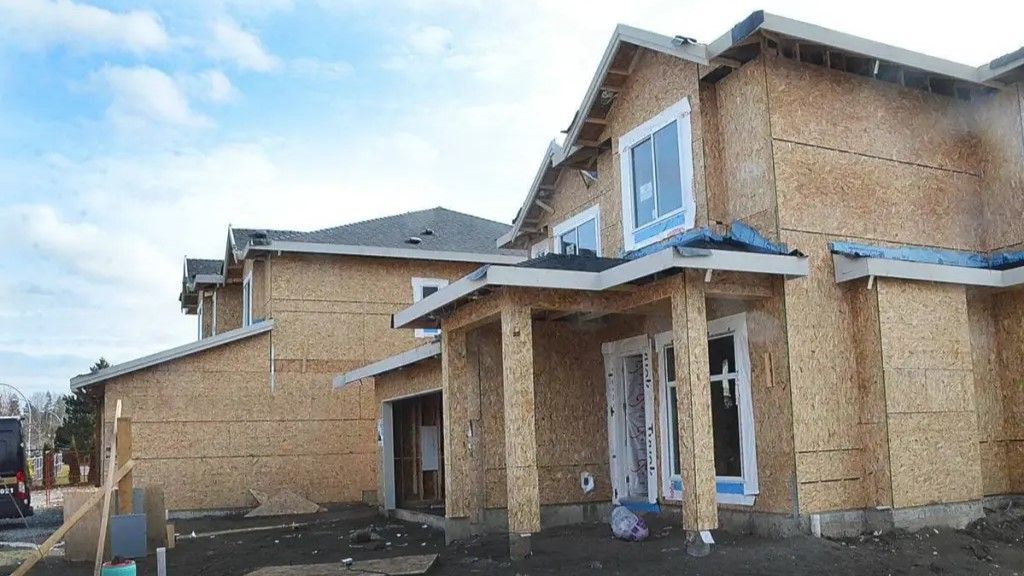Will the latest interest rate hike cool off Canada's housing market? Experts aren't so sure
Lisa Xing - CBC News • April 19, 2022

Bank of Canada raised overnight night rate to 1% this week.
There are already some short-term signs that Canada's housing market is cooling as the Bank of Canada starts to raise its benchmark interest rate — but some mortgage experts are questioning how much long-term impact the move will really have.
"The past two years, we've had free money," said Nasma Ali, a Toronto broker and the founder of a real estate agency called One Group.
But now that interest rates are climbing, with the Bank of Canada raising its benchmark rate on Wednesday by half a percentage point to one per cent, Ali says paying those higher costs is going to be "a tough pill to swallow" for some prospective home buyers
"Now, people will think twice," she told CBC News.
According to the the Toronto Regional Real Estate Board, average prices in the Greater Toronto Area dropped from $1.33 million in February to $1.29 million in March, which bucked the seasonal trend. Ali says she has seen market prices dip and fewer bids on homes overall.
But while banks are increasing their rates for variable mortgages and lines of credit, thus discouraging some prospective home buyers from entering the market, Ali and other housing experts wonder whether the effect will last.
The increase in the benchmark rate is the biggest in about two decades — an attempt to rein in soaring inflation. But rates are still lower than pre-pandemic levels. The bank slashed its rate to barely above zero in March 2020 after COVID-19 first struck.
"The latest increase will have a cooling effect," said James Laird, the president of Canwise Financial and co-founder of Ratehub.ca, a website that compares interest rates for consumers.
The increase in the benchmark rate is the biggest in about two decades — an attempt to rein in soaring inflation. But rates are still lower than pre-pandemic levels. The bank slashed its rate to barely above zero in March 2020 after COVID-19 first struck.
"The latest increase will have a cooling effect," said James Laird, the president of Canwise Financial and co-founder of Ratehub.ca, a website that compares interest rates for consumers.
But Laird says it will not be the only factor affecting the market.
"We have lots of new Canadians coming into the country. They're looking to buy homes. There's still a supply problem."
However, Laird and Ali both warn home prices might decrease, but buyers will be paying more interest on their monthly mortgage payments.
Ali says this might affect first-time home buyers the most.
"We have lots of new Canadians coming into the country. They're looking to buy homes. There's still a supply problem."
However, Laird and Ali both warn home prices might decrease, but buyers will be paying more interest on their monthly mortgage payments.
Ali says this might affect first-time home buyers the most.
'All this brouhaha'
Dustan Woodhouse, president of Mortgage Architects, a brokerage firm based in Vancouver, points out the announcement does not affect the majority of people who already own homes, since most of them have fixed-rate mortgages.
"All this brouhaha out there about what it all means — it doesn't really mean much," he said.
"All this brouhaha out there about what it all means — it doesn't really mean much," he said.
Woodhouse does not believe the interest rate hike will dissuade most first-time home buyers from getting into the market, if they can afford it in the first place.
"It's not a level playing field," he said. "But the reality is — even though detached homes have become the realm of the upper middle class, there's enough people in that category versus the supply of homes to buy that the market is stable and strong."
Essentially, for those who can pass the mortgage stress test and put enough money down, a higher interest rate won't stop them from making an offer, Woodhouse says.
"It's not a level playing field," he said. "But the reality is — even though detached homes have become the realm of the upper middle class, there's enough people in that category versus the supply of homes to buy that the market is stable and strong."
Essentially, for those who can pass the mortgage stress test and put enough money down, a higher interest rate won't stop them from making an offer, Woodhouse says.
But he does say it might rein in their spending on other things.
"It's probably means a shorter line outside a restaurant like The Keg on Friday night. They're not going out for a $150 dinner three times a month. Maybe only twice. Maybe only once."
"It's probably means a shorter line outside a restaurant like The Keg on Friday night. They're not going out for a $150 dinner three times a month. Maybe only twice. Maybe only once."







